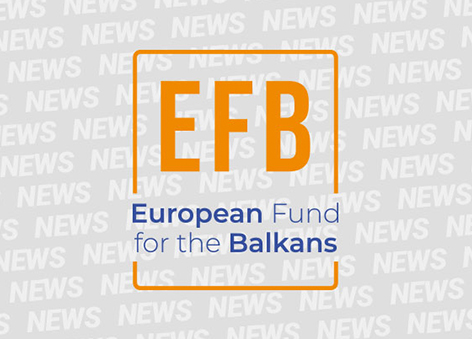
European Story Fund – produce, share stories – KEEP PUBLIC INFORMED!
Deadline: October 15, 2010
GUIDELINES - EUROPEAN STORY FUND
1. It is possible to apply for a grant for a maximum of 1,500 euros per story to cover additional expenses, for example, travel costs or archive costs.
2. The grant does not cover salary costs or provide per diems.
3. The Project Application Form should be completed saying briefly what the story is, where and how it will be shot, and the costs, as well as stating on which programme and on which TV station it will be broadcast - and when.
4. There will be a deadline on the 10th of each month and approval will be within ten days. The first deadline is October 15, 2010. This process will last until this phase of the funding is used up.
5. There is money available for 15 stories between now and March 31 2011.
6. There has to be a credit to the European Fund for the Balkans and the Balkans Trust for Democracy – it is up to the journalist how this is done.
7. The finished story has to be uploaded – in a version without commentary, with a script provided - to the SEETV platform so it is available to all interested journalists in the Western Balkans within a week of first broadcast.
8. A DVD of the story has to be sent to EFB. This is essential to show our donors what is being done.
While partnerships amongst 2 or more journalists for purpose of story production are not a requirement for funding, they will be taken into consideration as a positive factor in evaluation of applications
Examples of stories approved in the pilot phase:
- Three students – from Serbia, Macedonia and Montenegro, travel to Vienna the day visa tree travel is approved in December 2009 – what does it mean for them?
- Where is Schengen? What is the Schengen Agreement? Our team travelled to the Belgian town to find out more.
- The first day at work for Enlargement Commissioner Stefan Fuele – who is he and what are his plans for the Western Balkans?
- Learning from the neighbours: a report from Ljubljana as 6 young Macedonian officials lean about EU negotiations and processes from their Slovenian counterparts. What do ordinary Slovenes make of being EU citizens?
- Learning from new members – how have the Czechs modernised their public administration – what are the lessons for the Balkan countries?






